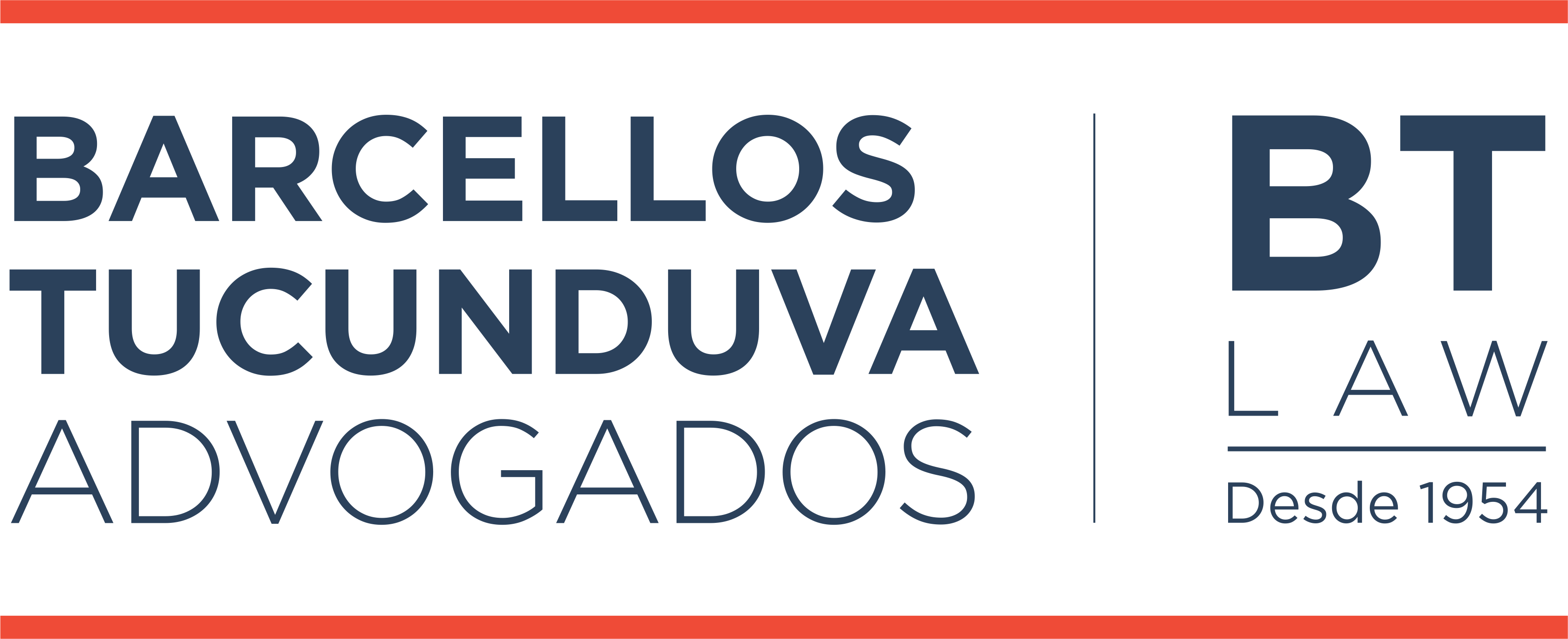“Contribuinte Legal” Executive Order
President Jair Bolsonaro has recently signed Executive Order n. 899/2019, also known as the “’Contribuinte Legal’ Executive Order”, aiming to promote settlement between taxpayers and the Federal Government concerning tax debts. Debts from which recovery is unlikely may be susceptible of up to 50% discount on interests, fines and fees, and up to 84-month installments. Individual taxpayers and small businesses may benefit from up to 100-month installments and up to 70% discounts.
Brazilian Revenue Service implements regulation for PIS/COFINS and raises controversy
The Brazilian Revenue Service (RFB) implemented Normative Ruling (NR) n. 1.911/2019, which regulates verification, billing, surveillance, collection, and management of PIS and COFINS, in both internal and imports categories. The ruling encompasses the possibility to exclude ICMS (tax on goods) from PIS/COFINS calculation basis, as ruled by the Brazilian Supreme Court (STF) within a recent trial, pending judgment on a Motion for Reconsideration, which is expected to be decided upon in December this year. Nonetheless, RFB established that the amount to be excluded from PIS/COFINS calculation basis should be the equivalent to ICMS “to be collected”, which raises controversy among taxpayers about interpretation of the act, as whether RFB is considering the effectively collected amount of ICMS or the reported tax. Within the ruling, RFB has also revoked NR n. 247/2002 and 404/2004, which regulate the matter in accordance with the Supreme Court’s judgment, being crucial to stress that Ruling n. 404/2004 would specifically state that ICMS in encompassed by “the amount of goods and services acquired for PIS/COFINS credit entitlement purposes”. The conclusion is that debate over calculation basis and credit entitlement for PIS/COFINS are hardly near to an end.
Brazilian Superior Court of Justice starts deciding on 30% limit for offsetting of fiscal losses by terminated companies
Last month, the Brazilian Superior Court of Justice (STJ) began to decide the 30% restriction for offsetting of fiscal losses by terminated, incorporated, spun-off and merged companies whose activities ended. Brazilian Supreme Court (STF) had already regarded the limit as constitutionally acceptable this year, but there were no rulings on specific matters, such as those of terminated companies, which intend to fully offset their aggregated fiscal losses during their last term. Justice Napoleão Nunes Maia Filho, who is presiding the case, has already voted favorably to taxpayers by avoiding the restriction. After the end of the adjournment requested by Justice Gurgel de Faria, the Court will proceed with the trial.
STJ starts deciding on credit entitlement of PIS/COFINS contributions in a single taxpayer liability system
STJ began to decide on credit entitlement of PIS/COFINS contributions on products subject to the single taxpayer liability system. The taxpayer states that Act n. 11.033/2004 (also known as “Lei do Reporto”) enables credits, even if the product is to be sold at a zero rate. Therefore, the PIS/COFINS crediting system would fall upon the contribution costs already embedded into taxes collected in a previous phase, although those contributions are not billed in sales. Justice Gurgel de Faria, who is presiding the case, rejected the taxpayer’s position and stated that the concession does not revoke other acts endorsing PIS/COFINS’s noncumulative principle. Justice Napoleão Nunes Maia Filho requested adjournment, after which the trial will resume.
COSIT offers an Answer to Advance Tax Ruling Request on inputs for commerce
The General Coordination for the Federal Revenue Taxation System (COSIT) recently offered an Answer to Advance Tax Ruling Request n. 248/2019, in which they stated that no inputs are able to generate PIS/COFINS credit entitlement concerning goods resales, as those would only exist in fabrication of goods intended for sales and in services for a third party. Therefore, RFB has concluded that there are no PIS/COFINS credit entitlements in goods resales. The interpretation is not in accordance with the Supreme Court’s recent ruling on Appeal n. 1.221.170/PR, through which the Court established that supplies for PIS/COFINS credit purposes are those regarded as essential or relevant to a company’s escope, and directly linked to it.
CARF partially revokes a billionaire charge regarding social security contributions PIS/COFINS on leasing transactions
The Administrative Tax Appeals Board (CARF) has partially revoked billion-BRL charges concerning PIS/COFINS contributions on leasing transactions made in 2012 and 2013 by a financial institution. In the case, the institution considered depreciation of assets subject to the leasing operation as an income reducing factor, and, at the end of the contract, the amount of the assets was completely deducted, having only profits remained as taxable values. Judging authorities kept charges in their substance, but decided to avoid the 150% fine, since they did not recognize any misconduct or fraud, and acknowledged loss of procedural right concerning the 2012 charges.
Offsetting of credits by companies excluded from the Brazilian Simplified Taxation System
Administrative General Coordination of Taxation (COSIT) has recently offered the Answer to Advance Tax Ruling Request n. 288/2019, in which they state it is possible for a company which wrongfully paid taxes within the Brazilian Simplified Taxation System (Simples Nacional) due to late notification on their exclusion from the system to offset those credits.
